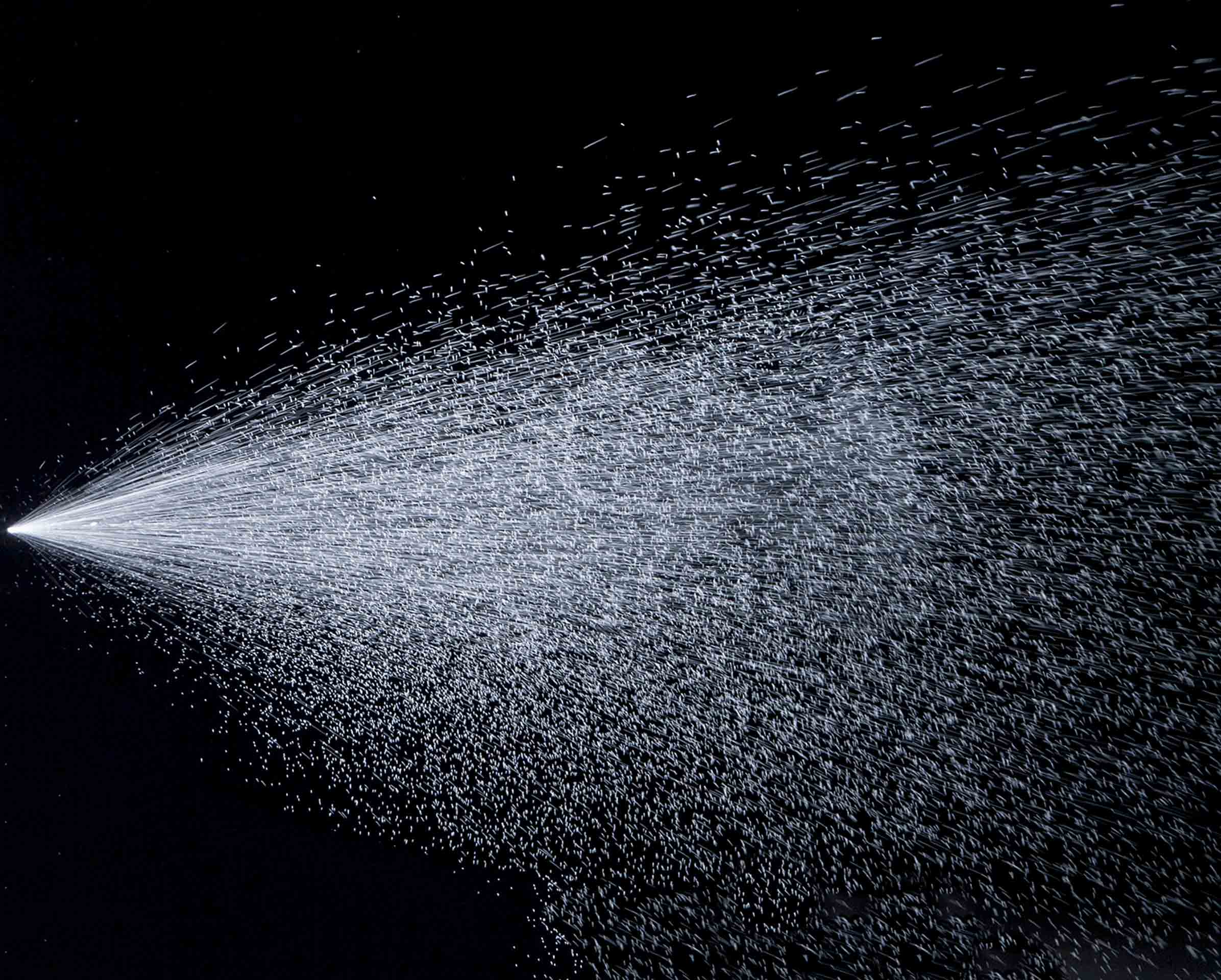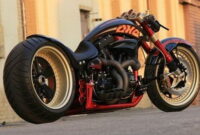Spray Trucks For Sale: A Comprehensive Buyer’s Guide pickup.truckstrend.com
In the vast landscape of industrial, agricultural, and municipal operations, efficiency and precision are paramount. Among the unsung heroes facilitating these qualities are spray trucks – versatile vehicles designed to precisely apply liquids across diverse environments. From suppressing dust on construction sites and de-icing wintry roads to nourishing crops and controlling pests, spray trucks are indispensable assets. For businesses, contractors, and public works departments looking to enhance productivity, reduce labor costs, and meet specific operational demands, understanding the market for "Spray Trucks For Sale" is a critical first step. This guide aims to be your comprehensive resource, navigating the intricacies of these essential machines and empowering you to make an informed purchasing decision.
Understanding Spray Trucks: Components and Functionality
Spray Trucks For Sale: A Comprehensive Buyer’s Guide
At its core, a spray truck is a mobile liquid application system. While configurations vary widely based on intended use, the fundamental components remain consistent:
- Chassis: This is the truck itself, providing mobility and the platform for the spray system. Chassis sizes range from smaller pickup-mounted units to heavy-duty, multi-axle industrial trucks. Factors like engine power, drivetrain (2WD, 4WD, AWD), and Gross Vehicle Weight Rating (GVWR) are crucial considerations.
- Tank: The reservoir for the liquid to be sprayed. Tanks come in various materials and capacities. Common materials include:
- Steel: Durable, often used for water, asphalt emulsions, or non-corrosive liquids. Can be coated internally for specific applications.
- Polyethylene (Poly): Lightweight, corrosion-resistant, ideal for chemicals like fertilizers, pesticides, and de-icing brines.
- Stainless Steel: Highly resistant to corrosion, often used for food-grade liquids or highly aggressive chemicals.
- Capacities can range from a few hundred gallons for utility trucks to over 5,000 gallons for large agricultural or industrial models.

- Pump: The heart of the spray system, responsible for moving the liquid from the tank to the nozzles and generating the necessary pressure. Types include:
- Centrifugal Pumps: High flow rates, lower pressure, common for water and less viscous liquids.
- Diaphragm Pumps: Good for abrasive or corrosive chemicals, self-priming, can handle higher pressures.
- Roller Pumps: Versatile, good for various liquids, medium pressure.
- Pump performance is measured by GPM (gallons per minute) and PSI (pounds per square inch).

- Spray System/Nozzles: This includes the plumbing, hoses, and the actual spray devices.

- Spray Bars: Common for wide-area coverage (e.g., dust suppression, street washing), with multiple nozzles spaced along a boom.
- Cannons/Monitors: High-volume, long-distance spraying (e.g., fire suppression, large-scale dust control).
- Booms: Articulating arms with numerous nozzles, predominantly used in agriculture for precise, wide-swath application.
- Hand Wands: For spot spraying or areas inaccessible to the main system.
- Nozzle types (fan, cone, flood) dictate spray pattern and droplet size, crucial for effective application.
- Control System: Ranging from simple manual valves to sophisticated electronic controls, GPS-guided systems, and variable rate application technologies that adjust spray volume based on speed or location data.
- Power Source: Often, the truck’s engine powers the pump via a Power Take-Off (PTO) unit. Some systems use auxiliary engines, especially for larger or specialized applications.
The basic functionality involves drawing liquid from the tank via the pump, pressurizing it, and then directing it through the spray system to achieve the desired coverage and application rate.
Key Applications and Industries Benefiting from Spray Trucks
The versatility of spray trucks makes them invaluable across a multitude of sectors:
- Construction & Mining: Primarily for dust suppression on unpaved roads and construction sites, ensuring worker safety, environmental compliance, and improved visibility. They also play a role in soil compaction by adding moisture.
- Agriculture: Crucial for applying fertilizers, herbicides, pesticides, and fungicides to crops. Specialized agricultural spray trucks feature long booms and precise application technologies to maximize yield and minimize chemical waste.
- Municipalities & Public Works: Essential for de-icing roads and sidewalks with brine solutions during winter, street sweeping and washing, mosquito control, and even fire suppression in remote areas.
- Landscaping & Nurseries: Used for watering large areas, applying insecticides or fungicides to plants, and spreading liquid fertilizers.
- Road Maintenance: Applying asphalt emulsions for tack coats before paving, crack sealing, and general road surface treatment.
- Environmental Remediation: Spraying water or specialized solutions for erosion control, reclamation projects, or dust mitigation at landfills.
Types of Spray Trucks: Choosing the Right Vehicle for Your Needs
The "Spray Trucks For Sale" market offers a diverse range of vehicles, each tailored to specific operational demands. Understanding these categories is vital for making an informed choice:
- Water Trucks (Dust Control/Compaction Trucks): These are the most common type, primarily equipped with large steel or poly tanks and high-volume centrifugal pumps. They are designed for dust suppression on construction sites, mining operations, and unpaved roads, as well as for compacting soil.
- Agricultural Sprayers (Ag Sprayers): Often highly specialized, these trucks feature wide booms (sometimes over 100 feet), advanced GPS guidance, variable rate technology, and corrosion-resistant tanks/pumps for precise chemical application. They prioritize accuracy and efficiency in farming.
- De-Icing Trucks (Brine Sprayers): Built to handle corrosive salt brine or liquid de-icers, these trucks typically have poly or stainless steel tanks and pumps resistant to corrosive materials. They often feature multiple spray nozzles for wide and targeted application on roads and bridges.
- Pest Control/Chemical Application Trucks: Smaller in scale, these units are often mounted on pickup trucks or smaller chassis. They feature specialized pumps and tanks designed for handling concentrated chemicals, used in urban pest control, lawn care, and public health initiatives.
- Multi-Purpose/Utility Spray Trucks: Designed for versatility, these trucks can be configured for various tasks like watering, light dust control, and some chemical applications. They often feature multiple spray outlets (front, rear, side) and may have interchangeable components.
When evaluating "Spray Trucks For Sale," consider if a highly specialized unit is required or if a versatile, multi-purpose truck would better serve your diverse needs.
Factors to Consider When Buying a Spray Truck
Purchasing a spray truck is a significant investment. Careful consideration of the following factors will ensure you acquire a machine that meets your operational requirements and budget:
- Primary Application: What will the truck primarily be used for? Dust control, agricultural spraying, de-icing, or a combination? This dictates tank material, pump type, and spray system configuration.
- Tank Capacity & Material:
- Capacity: Match the tank size to your typical job scale. Larger tanks mean fewer refills, but also require a larger chassis and higher fuel consumption.
- Material: Steel for water/non-corrosives, poly for chemicals, stainless steel for highly corrosive or food-grade liquids.
- Pump Type & Power: Ensure the pump’s GPM and PSI ratings are suitable for the liquids you’ll be spraying and the desired application rate. Consider pump material compatibility with chemicals.
- Chassis & Drivetrain:
- Size: Does the truck’s GVWR accommodate the full tank capacity and equipment?
- Drivetrain: 2WD is fine for paved roads, but 4WD or AWD is essential for off-road construction sites, farms, or challenging terrain.
- Engine: Adequate horsepower to handle the loaded weight and power the spray system.
- Spray System Configuration:
- Do you need front sprays, rear sprays, side sprays, a water cannon, or an agricultural boom?
- Are the nozzles easily replaceable and adjustable?
- Consider automated controls, GPS mapping, and variable rate application for precision.
- New vs. Used:
- New: Offers warranty, latest technology, customization, and reliability, but at a higher cost.
- Used: Lower upfront cost, immediate availability, and potentially proven reliability if well-maintained. However, it may come with hidden issues, no warranty, and older technology.
- Manufacturer & Dealer Support: Research reputable manufacturers known for quality and durability. Ensure there’s readily available parts and service support in your area.
- Regulatory Compliance: Be aware of local, state, and federal regulations regarding emissions, chemical handling, transport of liquids, and safety features.
- Budget & Total Cost of Ownership (TCO): Factor in not just the purchase price, but also fuel, maintenance, insurance, potential repairs, and operator training.
New vs. Used Spray Trucks: Pros and Cons
The decision between new and used "Spray Trucks For Sale" is often dictated by budget and immediate needs.
Buying New:
- Pros: Full warranty, access to the latest technology (GPS, automation), customization options, higher reliability, lower initial maintenance costs, better fuel efficiency in newer models.
- Cons: Significantly higher upfront cost, depreciation begins immediately, longer lead times for custom builds.
Buying Used:
- Pros: Substantially lower purchase price, immediate availability, potential for good value if well-maintained, proven reliability (if unit has a good service history).
- Cons: No warranty (or limited), higher risk of unexpected repairs, potentially outdated technology, unknown service history, wear and tear on components.
Tips for Buying Used:
- Thorough Inspection: Conduct a detailed pre-purchase inspection by a qualified mechanic. Check the chassis, engine, transmission, and especially the spray system components (tank integrity, pump condition, hoses, nozzles).
- Maintenance Records: Request full service and maintenance records. This provides insight into how well the truck was cared for.
- Test Drive: Operate the truck under conditions similar to your intended use, including testing the spray system.
- Fluid Analysis: Consider oil and coolant analysis for insights into engine and transmission health.
- Reputable Seller: Purchase from a reputable dealer or seller known for transparency and quality used equipment.
Maintenance Tips for Longevity and Performance
Regardless of whether you buy new or used, proper maintenance is crucial for extending the life of your spray truck and ensuring optimal performance.
- Regular Cleaning: Thoroughly flush and clean the tank, pump, and spray system after each use, especially when applying chemicals. Residual chemicals can corrode components.
- Pump Maintenance: Regularly check pump seals, bearings, and impellers. Lubricate as per manufacturer recommendations.
- Nozzle & Filter Checks: Inspect nozzles for clogs, wear, and proper spray pattern. Clean or replace filters regularly to prevent debris from reaching the pump and nozzles.
- Hose & Fitting Inspection: Check all hoses for cracks, leaks, or deterioration. Ensure all fittings are tight.
- Winterization: In cold climates, thoroughly drain all water from the system before freezing temperatures set in. Use antifreeze solutions for systems that cannot be fully drained.
- Engine & Chassis Service: Follow the manufacturer’s recommended service schedule for the truck’s engine, transmission, brakes, and tires.
- Calibration: Periodically calibrate your spray system to ensure accurate application rates and consistent coverage.
Financing and Insurance for Your Spray Truck
Acquiring a spray truck often requires significant capital. Understanding financing and insurance options is key.
- Financing:
- Equipment Loans: Specialized loans from banks, credit unions, or equipment finance companies are common. They often require a down payment and offer various repayment terms.
- Leasing: An alternative to buying, leasing allows you to use the equipment for a fixed period with monthly payments. It can offer tax advantages and lower upfront costs, but you won’t own the asset at the end of the term (unless there’s a purchase option).
- Lines of Credit: For businesses with fluctuating needs, a line of credit can provide flexible access to funds for equipment purchases.
- Insurance:
- Commercial Auto Insurance: Covers the truck itself for liability and physical damage.
- Inland Marine Insurance: Crucial for covering the specialized equipment (tank, pump, spray system) against damage, theft, or loss, whether on the truck or detached.
- General Liability Insurance: Protects against third-party claims for property damage or bodily injury arising from your operations, including potential overspray incidents.
- Workers’ Compensation: If you have employees operating the truck.
Consult with a commercial insurance broker to ensure you have adequate coverage tailored to your specific operations and risks.
Illustrative Price Table for Spray Trucks For Sale
The price of spray trucks can vary dramatically based on factors like new vs. used, manufacturer, capacity, features, chassis condition, and specialization. The table below provides illustrative price ranges for common types, but these are estimates only and subject to market fluctuations.
| Category/Type | Capacity (Gallons) | Condition | Estimated Price Range (USD) | Key Features/Notes |
|---|---|---|---|---|
| Small Utility / Pickup Mounted | 100 – 500 | Used | $15,000 – $45,000 | Ideal for landscaping, small construction, localized pest control. Basic pump, manual controls. |
| New | $40,000 – $80,000 | Customizable, robust pumps, options for small booms or hand wands. | ||
| Mid-Size Water Truck (Single Axle) | 1,000 – 2,500 | Used | $30,000 – $90,000 | Common for construction dust control, road maintenance. Price varies heavily by mileage/age. |
| New | $100,000 – $220,000+ | New chassis, heavy-duty pumps, various spray head configurations, customizable. | ||
| Large Industrial / Ag Sprayer | 2,500 – 5,000+ | Used | $70,000 – $200,000 | Tandem or tri-axle, high-capacity pumps, often with specialized features like booms. |
| New | $250,000 – $550,000+ | Top-tier manufacturers, advanced GPS, variable rate control, high-tech application systems. | ||
| Specialized De-Icing / Chemical Truck | 1,000 – 3,000 | Used | $50,000 – $160,000 | Poly/stainless tanks, corrosive-resistant pumps, precise application for brine/chemicals. |
| New | $180,000 – $400,000+ | Advanced control systems, heated tanks, specialized nozzles, municipal grade specifications. |
Note: These prices do not include taxes, shipping, or potential customization costs. Highly specialized features (e.g., advanced GPS, complex boom systems, custom chassis builds) can significantly increase the price.
Frequently Asked Questions (FAQ) about Spray Trucks
Q1: What’s the main difference between a "water truck" and a "spray truck"?
A1: While all water trucks are a type of spray truck, "water truck" typically refers to vehicles primarily used for dust suppression or soil compaction, spraying only water. "Spray truck" is a broader term encompassing vehicles that spray various liquids, including chemicals, de-icers, or other specialized solutions, often with more sophisticated application systems.
Q2: Can I use a general-purpose spray truck for agricultural chemicals?
A2: It’s not recommended without proper modifications. Agricultural chemicals are often corrosive and require tanks made of poly or stainless steel, as well as pumps and plumbing resistant to specific chemicals. Additionally, agricultural spraying requires precise application rates, often achieved with specialized booms and GPS guidance not found on standard water trucks.
Q3: What tank material is best for my needs?
A3:
- Steel: Durable and cost-effective for water, but can rust with corrosive liquids.
- Polyethylene (Poly): Lightweight, corrosion-resistant, ideal for most chemicals (fertilizers, pesticides, de-icers).
- Stainless Steel: Highly resistant to a wide range of corrosive chemicals and ideal for food-grade liquids, but more expensive.
Q4: How often should I perform maintenance on my spray truck?
A4: Regular maintenance is key. Flush and clean the spray system after every use, especially with chemicals. Perform daily visual checks for leaks and damage. Follow the manufacturer’s schedule for engine, chassis, and pump maintenance, which typically includes daily, weekly, monthly, and annual checks.
Q5: Is it better to buy a new or used spray truck?
A5: The best choice depends on your budget, urgency, and risk tolerance. New trucks offer reliability and the latest tech with a warranty but are more expensive. Used trucks are more affordable and immediately available but come with higher risk of wear-related issues and no warranty. For used trucks, a thorough inspection and service history are crucial.
Q6: What is a PTO, and why is it important for spray trucks?
A6: PTO stands for Power Take-Off. It’s a mechanical device that transfers power from the truck’s engine to auxiliary equipment, such as the spray pump. It’s important because it allows the truck’s engine to power the spray system efficiently without needing a separate engine for the pump.
Q7: What regulations should I be aware of when operating a spray truck?
A7: Regulations vary by location and application. Key areas include:
- Emissions standards for the truck’s engine.
- Chemical handling and storage regulations (especially for pesticides or hazardous materials).
- Spill prevention and control plans.
- Driver licensing requirements (e.g., CDL for larger trucks).
- Weight restrictions on roads.
Always consult local, state, and federal authorities relevant to your specific operations.
Conclusion
Spray trucks are more than just vehicles; they are specialized tools that drive efficiency, productivity, and safety across numerous industries. From the meticulous application of agricultural nutrients to the vital task of dust suppression on construction sites, the right spray truck can significantly impact your operational success.
When navigating the "Spray Trucks For Sale" market, remember that informed decision-making is paramount. Carefully assess your specific needs, consider the various types and their features, weigh the pros and cons of new versus used equipment, and factor in the long-term costs of ownership. By investing time in research and seeking expert advice, you can acquire a spray truck that not only meets your current demands but also provides reliable, high-performance service for years to come. A well-chosen spray truck isn’t just an expense; it’s a strategic investment in the future of your operations.



